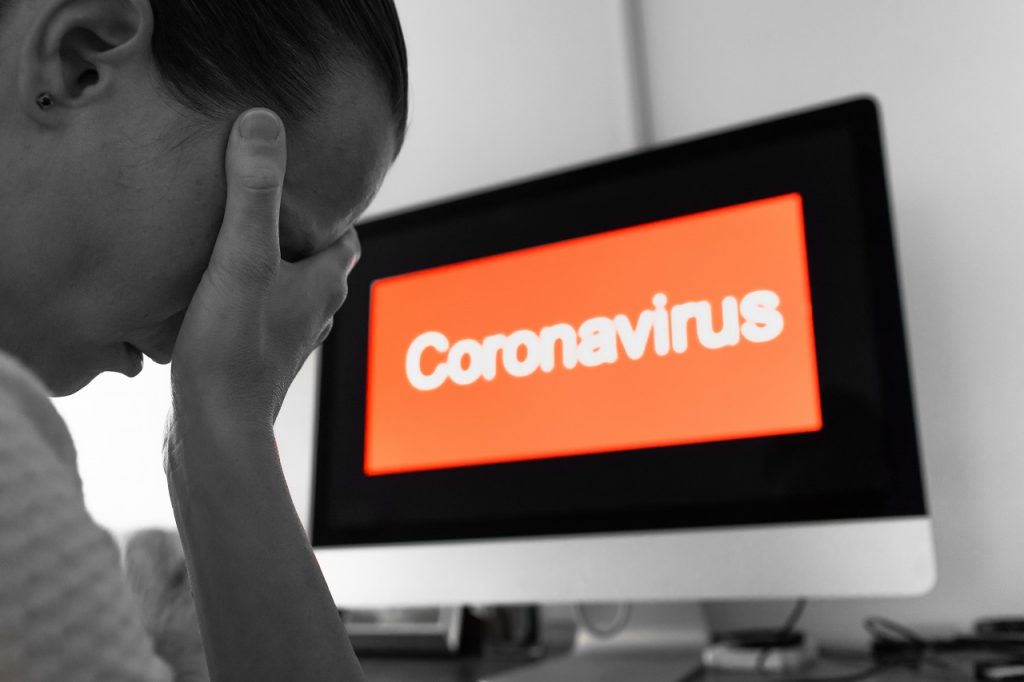
The current Pandemic situation across the world has taken a toll on people and Indians are no different. It has led to fear, panic and anxiety among people. The corona-stress is taking a toll on the mental health of people world over. To add to it, social distancing – key and essential steps taken to curtail the spread, is leading to minimal human contact and negligible physical social connections. The pandemic has only intensified depression.
With the fear of losing livelihood and going out, insecurity for oneself and loved ones, anxiety, health scares and the overall volatile environment, stress levels are at an all-time high. Copious amounts of stress can lead to depression.
A recent study undertaken by GOQii indicates that 43% of Indians are depressed and are learning to cope with it. Another 26% Indians are facing mild depression, 17% face a more strenuous kind. It is concerning to note that 6% Indians are severely depressed, the study indicated.
How Has The Lockdown Affected Mental Health?
The study was conducted by GOQii, across 10000+ Indians, to understand how COVID has changed lifestyle and how Indians are adapting to the new normal. This is a comparative study and highlights the glaring difference in lifestyle habits pre-corona and post lockdown. As per the study, a large section of the population has little interest in doing things in the current scenario.
There is a cause of concern with more than 59% of the population having little pleasure in doing things these days, out of which 38% have this feeling on a few days and 9% feel so more than half of the days. 12% of the population have little interest almost every day in these times.
“Anxiety is one of the symptoms of depression. Most people are anxious on various counts. For some it is about not having a regular routine as they did in normal times,” says Divya Thampi, an Emotional Wellness Coach on GOQii Play, the interactive video coaching platform.
As a counsellor, she has found that for many individuals, it’s related to the work from home (WFH) situation. Work hours have invariably extended, there is lack of boundaries, lack of sleep, lack of motivation to work and lots of nervousness – all leading to anxiety.
Many are experiencing the ‘MEH’ feeling. This is an emotion that says a lot without saying much. It is a feeling where one has little interest in doing things, does not want to get up from the couch, wants to eat copious amounts of food and especially the urge to eat sugary things, procrastinating to do certain tasks that need to be done and many such things.
Key Insights of the Study
As per the GOQii study, approximately 10% feel down and depressed more than half of the days or nearly every day. The study further indicates that a large section of the population has little interest in doing things in the current scenario. There is a cause for concern with more than 59% of the population having little pleasure in doing things these days, out of which 38% have this feeling on a few days, 9% feel thus on more than half of the days and 12% of the population have little interest in anything almost every day.
The fact that there are no boundaries, no routine to follow and also that many have yet not been able to adjust to the new normal is creating problems for some. “Most people feel energetic when there is sense of purpose or a goal to achieve,” Thampi adds.
Counsellors and mental health practitioners say that from a pandemic perspective, the number of people reaching out for help is increasing and many are newcomers. The common feeling among most is that of ‘not feeling okay’.
Given The Situation, How Does One Cope With Depression?
What are the coping mechanisms that can ease the stress of those going through some or the other mental condition?
Coping mechanisms are varied. Under normal circumstances, walking in nature is advised, as it calms you and relaxes your mind. But in the current scenario, being indoors and not being able to step out is a challenge for many. Also, most look for a safe place to be able to talk to someone or their counsellors. Mental health practitioners say these days many are unable to do that. Given such a scenario what is the way out?
Thampi says, “When there a purpose or a goal set for yourself, you will be occupied to get that task or goal completed. Taking up something as a challenge works well as it gives you some engagement. Secondly, if you cannot go out, having plants around you is a good option as that is a connection to nature as well.”
Mental practitioners recommend that individuals in this condition should talk to people with whom they feel safe. One should also reach out for therapists if necessary. The positive factor is that people are reaching out for counselling. Counsellors and Mental Health practitioners echo one point that mental health is now being discussed openly by families, parents and even corporations. It is being taken seriously.
Mental health is an important part of overall health and wellbeing. It affects how we think, feel and act. It may also affect how we handle stress, relate to others and make choices during an emergency. We need more conversations around the issue and people need to realise its ‘okay’ to talk about it.




Does this study have a peer-reviewed paper? Please point us to it for us to learn more